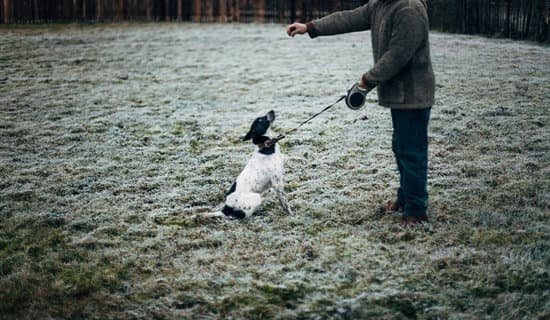A day in the life of a dog trainer is filled with excitement, challenges, and rewarding moments. Dog trainers play a crucial role in helping our furry companions learn manners, behavior modification, and obedience. From early morning wake-ups to late evening reflections, a dog trainer’s day is packed with various activities tailored to each dog’s unique needs.
The day typically starts bright and early as a dog trainer prepares to embark on a day full of training sessions with different dogs. Fueling up with a hearty breakfast ritual is essential to sustain the energy needed for handling multiple canine clients throughout the day. Gathering training tools and equipment is a crucial step in preparing for the various training sessions that await, ensuring that each dog receives personalized attention and guidance.
As the day progresses, the dog trainer works diligently with each canine client, addressing their specific needs and behaviors. Taking breaks between sessions not only gives the trainer a chance to recharge but also allows the dogs to rest and process their training experiences.
Beyond hands-on training sessions, administrative tasks such as updating records and scheduling appointments are part of maintaining an organized business while continuing education through workshops and seminars ensures that the trainer stays current with best practices in dog behavior modification techniques.
Early Morning
As the sun begins to rise, a day in the life of a dog trainer starts with waking up bright and early to kickstart the day. The early morning hours are crucial for setting the tone for what lies ahead, not just for the trainer, but also for the furry clients they will be working with.
For many dog trainers, starting their day with a sense of peace and focus is essential to ensure they are prepared to handle whatever challenges come their way during training sessions.
The first task after waking up is often taking care of personal needs such as breakfast and perhaps some exercise to get energized for the day ahead. A well-fed and physically refreshed dog trainer is better equipped to tackle the demands of working with multiple dogs throughout the day. This time allows them to mentally prepare themselves for the tasks at hand, ensuring that they are ready to provide top-notch training services.
Additionally, this time in the morning may also be used by dog trainers to review their schedule and notes from previous sessions. This helps them stay organized and have a clear plan for how they will approach each training session throughout the day.
By starting off their morning in an organized manner, dog trainers can set themselves up for success as they embark on a busy day filled with tail wags, treats, and progress towards building better relationships between dogs and their human companions.
| Early Morning Routine | Key Activities |
|---|---|
| Waking Up Bright and Early | Mentally preparing for a day of training |
| Breakfast & Exercise | Fueling up for a busy day ahead |
| Reviewing Schedule & Notes | Organizing tasks for upcoming training sessions |
Breakfast Ritual
The breakfast ritual of a dog trainer is an essential part of their daily routine, providing the necessary fuel to kickstart a busy day ahead. A nutritious breakfast not only provides energy but also sets the tone for the rest of the day.
Many dog trainers opt for a balanced meal that includes protein, carbohydrates, and healthy fats to sustain them through their training sessions with various dogs. Whether it’s scrambled eggs and whole grain toast or a smoothie packed with fruits and veggies, dog trainers understand the importance of starting their day right.
In addition to serving as a source of physical energy, breakfast can also be a moment of mental preparation for a dog trainer. It allows them to take a moment to plan out their training sessions for the day, review any special requirements or needs of their canine clients, and mentally prepare themselves for the challenges and rewards that come with the job.
Eating breakfast mindfully can help set a positive mindset that will benefit both the trainer and the dogs they work with throughout the day.
For many dog trainers, breakfast serves as an opportunity to practice self-care before diving into a demanding schedule. Taking those few moments in the morning to sit down and enjoy a meal can be a grounding practice amidst the hectic pace of working with different dogs daily. It allows trainers to nourish themselves not just physically but also emotionally, ensuring they are in top form to provide excellent care and training for their furry clients.
| Aspect | Detail |
|---|---|
| Nutritious Breakfast | Includes protein, carbs, and healthy fats |
| Mental Preparation | Planning training sessions & reviewing client needs |
| Self-Care | Opportunity for trainers to ground themselves before work |
Preparing for Clients
As a dog trainer, one of the crucial aspects of preparing for clients is ensuring that you have all the necessary training tools and equipment at your disposal. Each dog is unique in its needs and behaviors, so having a variety of tools ready can help you tailor your approach to best suit the dog you are working with. From treats and clickers to leashes and harnesses, having a well-stocked training kit is essential for success.
Before each training session, it’s important to review the specific needs of the dog you will be working with. Some dogs may respond better to positive reinforcement techniques, while others may require a more structured training approach. By understanding the individual temperament and behaviors of each dog beforehand, you can better prepare yourself with the right tools and techniques to address their training needs effectively.
In addition to physical tools and equipment, mental preparation is also key when getting ready for clients. Taking a few moments before each session to center yourself and focus on the task at hand can help ensure a successful training session. By being mentally present and prepared, you can approach each client with confidence and clarity, setting both yourself and the dog up for a productive training experience.
Training Sessions
During the training sessions throughout the day, a dog trainer may find themselves working with dogs of all ages, breeds, and temperaments. Some dogs may require basic obedience training, while others may need assistance with behavioral issues such as aggression or anxiety. By adapting training techniques to suit each dog’s personality and learning style, a dog trainer can effectively help them reach their full potential.
To ensure successful training sessions, a dog trainer may utilize a variety of tools and techniques such as treats, clickers, toys, or positive reinforcement methods. By constantly evaluating the progress of each dog and adjusting the training approach as needed, the trainer can tailor their methods to meet the unique needs of every canine client. Additionally, maintaining open communication with pet owners throughout the process is essential in ensuring continuity in training and achieving desired results.
- Adapting training techniques to suit each dog’s personality
- Utilizing tools such as treats, clickers or positive reinforcement methods
- Constantly evaluating progress and adjusting training approaches
Break Time
As a dog trainer, taking breaks throughout the day is not only important for your own well-being but also crucial for the dogs you are working with. Break time allows both you and the dogs to recharge, refocus, and continue training sessions with renewed energy. These short respites give trainers an opportunity to assess progress, evaluate strategies, and make necessary adjustments to ensure effective training for each canine client.
The Importance of Breaks
Taking breaks during a day in the life of a dog trainer is essential in preventing mental and physical burnout. It allows trainers to clear their minds, relax their bodies, and maintain a positive attitude when working with dogs.
For the dogs themselves, breaks provide much-needed rest periods where they can process information, practice new skills, and build trust with their trainer. Incorporating scheduled breaks into training sessions helps create a balanced routine that promotes learning and engagement from both parties.
Activities During Break Time
During break time, dog trainers can engage in various activities to unwind and recharge. Some may choose to take a short walk outside to get some fresh air or stretch their legs after being in training sessions indoors. Others may use this time to review training notes, plan upcoming sessions, or even interact with other dogs in their care.
Providing mental stimulation and social interactions during break time can be beneficial for both trainers and dogs alike. It promotes bonding, relieves stress, and maintains a positive atmosphere throughout the day’s training activities.
Break time is not just about resting physically; it is also about rejuvenating mentally and emotionally. By incorporating short breaks into daily routines as a dog trainer, you set yourself up for success by ensuring that you are always at your best when working with your four-legged clients.
So next time you find yourself caught up in the hustle and bustle of training sessions, remember the importance of taking those moments to pause, refresh, and recharge – it will make all the difference in your effectiveness as a dog trainer.
Administrative Tasks
As a dog trainer, administrative tasks are an essential part of maintaining a successful business and ensuring that each client receives the best possible training experience for their furry companions. This section will explore the behind-the-scenes work that goes into keeping track of training records and scheduling appointments to streamline the training process.
One of the key aspects of the administrative tasks in a day in the life of a dog trainer is updating training records. This includes documenting progress made by each dog during training sessions, noting any behavioral changes, and keeping track of any challenges encountered along the way. By maintaining detailed and accurate training records, dog trainers can tailor their approach to meet the individual needs of each dog effectively.
In addition to updating training records, scheduling appointments is another vital aspect of administrative tasks for a dog trainer. Whether it’s booking initial consultations, setting up follow-up sessions, or coordinating group classes, efficient appointment scheduling is crucial to ensure that both clients and their dogs receive timely and consistent training. Utilizing tools like online calendars or scheduling software can help dog trainers stay organized and keep track of upcoming appointments seamlessly.
- Documenting progress made during training sessions
- Noting any behavioral changes in dogs
- Keeping track of challenges encountered
- Booking initial consultations for new clients
- Scheduling follow-up sessions with existing clients
- Coordinating group classes for multiple dogs
Continuing Education
As a dog trainer, staying updated on the latest training techniques and methods is crucial to providing the best care for your furry clients. This is why attending workshops and seminars plays a vital role in enhancing your skills and knowledge in the field. These educational opportunities allow you to learn from experienced professionals, network with other trainers, and explore new trends in dog training.
A typical day in the life of a dog trainer often includes scheduling time for continuing education. Whether it’s a weekend workshop on positive reinforcement training or a seminar on behavior modification, these learning experiences help you refine your techniques and expand your understanding of canine behavior. By staying up-to-date with industry developments, you can adapt your training approach to better meet the needs of each individual dog you work with.
In addition to acquiring new knowledge and skills, attending workshops and seminars as a dog trainer also provides valuable opportunities for professional growth. You may discover innovative tools or resources that can enhance your training sessions, as well as build connections within the dog training community. Ultimately, investing in continuing education not only benefits the dogs under your care but also enriches your own career as a dedicated and knowledgeable trainer.
Evening Routine
After a long and rewarding day of training dogs, a dog trainer’s evening routine is essential for unwinding and preparing for the next day’s challenges. Many dog trainers find that ending the day on a positive note helps them recharge both physically and mentally. One common evening ritual for dog trainers is to engage in some form of relaxation activity, whether it be going for a walk, practicing yoga, or simply sitting down with a good book.
Another important aspect of the evening routine for a dog trainer is reflecting on the day’s training sessions. This reflection allows trainers to assess their progress with each dog, identify any areas that need improvement, and celebrate successes achieved throughout the day. By taking the time to reflect on their work, dog trainers can continuously refine their training techniques and provide even better support to their canine clients.
In addition to personal relaxation and reflection, many dog trainers also use their evenings to prepare for upcoming training sessions. This may involve reviewing notes from previous sessions, creating customized training plans for individual dogs, or researching new techniques to address specific behavioral issues.
By dedicating time in the evening to stay organized and prepared, dog trainers ensure they are ready to hit the ground running the next morning as they embark on another fulfilling day in the life of a dog trainer.
Reflection
Being a dog trainer is a fulfilling yet challenging profession that requires dedication, patience, and a genuine love for animals. Reflecting on a day in the life of a dog trainer, one can truly appreciate the unique experiences and rewards that come with this role. Each day presents a new opportunity to make a positive impact on the lives of both dogs and their owners.
One of the most significant challenges faced by dog trainers is working with dogs of various temperaments and backgrounds. Some dogs may be fearful or aggressive, requiring special attention and care during training sessions. It takes skill and understanding to tailor training methods to suit each individual dog’s needs effectively. Despite these obstacles, witnessing the progress and transformation of a once troubled dog into a well-behaved companion is undeniably rewarding.
Moreover, beyond just training dogs, dog trainers also play a crucial role in educating pet owners about responsible pet ownership and proper training techniques. Building strong relationships with clients based on trust and communication is key to ensuring the success of any training program.
The satisfaction of seeing both dogs and their owners develop stronger bonds and mutual respect through effective training methods is truly heartwarming. Overall, the challenges faced by dog trainers are outweighed by the joy that comes from helping dogs reach their full potential and enhancing the human-animal bond.
Frequently Asked Questions
What Is a Typical Day Like for a Dog Trainer?
A typical day for a dog trainer involves working with multiple dogs, assessing their behavior, and designing training programs to address any issues. They spend time teaching commands, reinforcing positive behavior, and working on leash manners. Additionally, they may interact with dog owners to provide guidance and support in implementing training techniques effectively.
What It’s Like to Be a Dog Trainer?
Being a dog trainer is fulfilling yet challenging. It requires patience, communication skills, and a deep understanding of canine behavior. Trainers need to adapt their methods to suit each dog’s personality and learning style. Building trust with both the dogs and their owners is crucial for success in this profession.
Is Being a Dog Trainer Stressful?
Yes, being a dog trainer can be stressful at times. Dealing with difficult or aggressive dogs can be physically and mentally taxing. In addition, some pet owners may have unrealistic expectations or struggle to follow through with training outside of sessions.
The responsibility of ensuring the well-being of the dogs under their care can also add pressure to the job. However, most trainers find ways to manage stress through self-care practices and seeking support from colleagues in the field.

Welcome to the blog! I am a professional dog trainer and have been working with dogs for many years. In this blog, I will be discussing various topics related to dog training, including tips, tricks, and advice. I hope you find this information helpful and informative. Thanks for reading!





